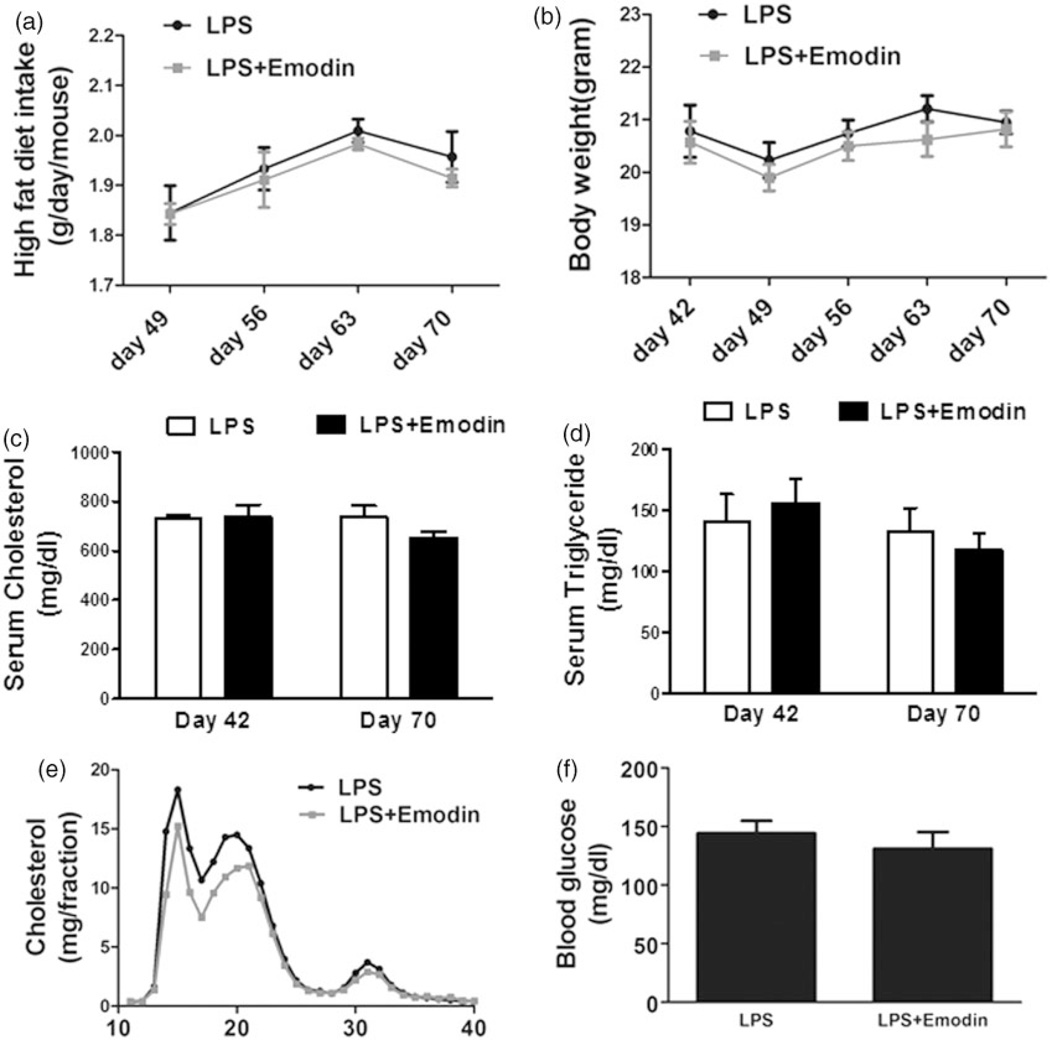Figure 2.
Emodin did not alter mouse food intake, body weight, serum lipids and blood glucose levels. Six-week-old female LDLR−/− mice were fed a high fat diet for 10 weeks. During the last four weeks, the mice were injected LPS with or without emodin once daily. (a) At the end of each indicated week, mouse food intake was monitored. The average daily intake of high fat diet per mouse during the week was calculated. (b) At the indicated days of high fat diet feeding, mouse body weights were measured. (c and d) At indicated days, mouse serum cholesterol (c) and triglyceride (d) levels were measured. (e) Pooled serum samples from mice at the experimental end point were analyzed for the lipoprotein profile using FPLC. Cholesterol content in each faction was determined. (f) Fasting blood glucose levels of mice at the experimental end point were measured. n=10 for each group

